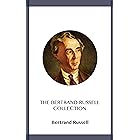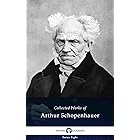| Print List Price: | $7.99 |
| Kindle Price: | $0.99 Save $7.00 (88%) |
| Sold by: | Amazon.com Services LLC |
Your Memberships & Subscriptions

Download the free Kindle app and start reading Kindle books instantly on your smartphone, tablet, or computer - no Kindle device required.
Read instantly on your browser with Kindle for Web.
Using your mobile phone camera - scan the code below and download the Kindle app.

OK
The Kierkegaard Collection Kindle Edition
The Soren Kierkegaard Collection features:
Fear and Trembling
Philosophical Fragments
Purity of Heart Is to Will One Thing
and
The Sickness Unto Death
- LanguageEnglish
- PublisherBlackmore Dennett
- Publication dateMarch 12, 2019
- File size4713 KB
Customers who bought this item also bought
Product details
- ASIN : B07PRNH8ZH
- Publisher : Blackmore Dennett (March 12, 2019)
- Publication date : March 12, 2019
- Language : English
- File size : 4713 KB
- Text-to-Speech : Enabled
- Screen Reader : Supported
- Enhanced typesetting : Enabled
- X-Ray : Not Enabled
- Word Wise : Enabled
- Sticky notes : On Kindle Scribe
- Print length : 601 pages
- Best Sellers Rank: #54,216 in Kindle Store (See Top 100 in Kindle Store)
- Customer Reviews:
About the author

Soren Aabye Kierkegaard (1813-1855) was a 19th century Danish philosopher and theologian, generally recognized as the first existentialist philosopher.
Photo by Neils Christian Kierkegaard [Public domain], via Wikimedia Commons.
Customer reviews
Customer Reviews, including Product Star Ratings help customers to learn more about the product and decide whether it is the right product for them.
To calculate the overall star rating and percentage breakdown by star, we don’t use a simple average. Instead, our system considers things like how recent a review is and if the reviewer bought the item on Amazon. It also analyzed reviews to verify trustworthiness.
Learn more how customers reviews work on AmazonReviews with images
-
Top reviews
Top reviews from the United States
There was a problem filtering reviews right now. Please try again later.
What this caricature misses is that Kierkegaard was one of the great literary minds of the nineteenth century. In his writings he distinguishes between the Christian, who brings eternity into this world, and the genius of the imagination. I would argue that Kierkegaard is both genius and Christian. An analogy with a twentieth century author might help illustrate the power of Kierkegaard’s mind.
JRR Tolkien is often remembered as the author of the charming children’s story the Hobbit. Some may know that he also authored the Lord of the Rings. Fewer know that he invented many languages for his fictitious elves, orcs and men to speak. Only rarely is it recognized that the whole creation of Middle-Earth, with its histories, peoples, epic poems, legends and languages was all in the service of building a mythology that should serve as a propaedeutic for Christianity. Tolkien was not simply the author of a timeless children’s book. He was a genius to invent a world with the depth and believability of Middle Earth.
Kierkegaard chose a variation of this path. What he created were books by imaginary authors who spoke in their own voice, could comment on each others’ works and were selected from the different kinds of humanity.
Most writers struggle to write with a unique and authentic voice. Kierkegaard created many distinct and consistent voices. All of these, from the aesthete to the philosophical ironist to the hedonist were in the service of a greater project: Awakening his fellow Danes from conventional Christianity to an awareness of its true greatness and power.
Like all great writers, it’s worth reading Kierkegaard just to appreciate this genius. Add to this the fact that his works were concerned with the existential—what it means to be human—makes for writings with perennial pertinence.
One of Kierkegaard’s pseudonymous authors says that he stood in awe of Abraham as the exemplar of faith. I stand in awe of the genius of Kierkegaard. Too bad that he has become more of a caricature and less and less recognized as one of the great minds of humanity.
Challenging the christianity o his day he offers challenge to how we understand faith and reality.
We worth the read.
"fear and trembling" might as well be the greatest philosophical book I ever read.
For it go so far as only to come back
Top reviews from other countries
The first page is Introduction… and it is titled Introduction - II. Where’s the first intro, guys? Then you read the first sentence. Book is in English… I am sure these guys have used Google translator to translate Kierkegaard from Danish to English… and it’s bad… it’s sad…
Don’t even think of buying this book.
Reviewed in India on September 21, 2023
The first page is Introduction… and it is titled Introduction - II. Where’s the first intro, guys? Then you read the first sentence. Book is in English… I am sure these guys have used Google translator to translate Kierkegaard from Danish to English… and it’s bad… it’s sad…
Don’t even think of buying this book.












